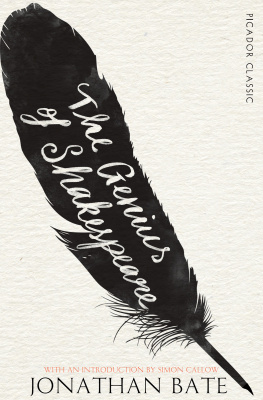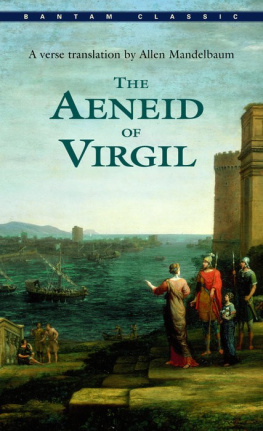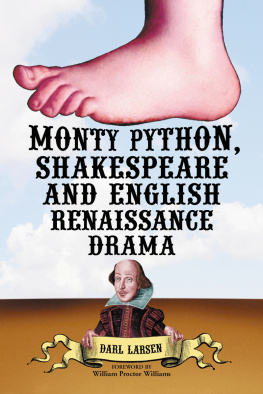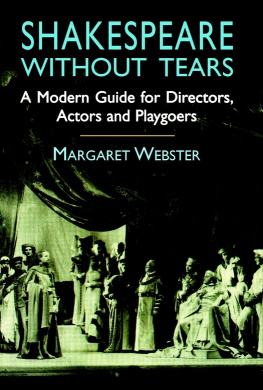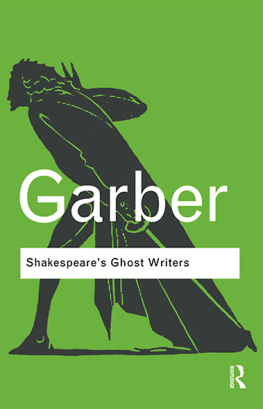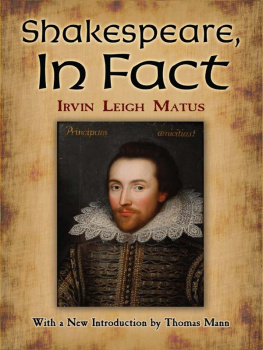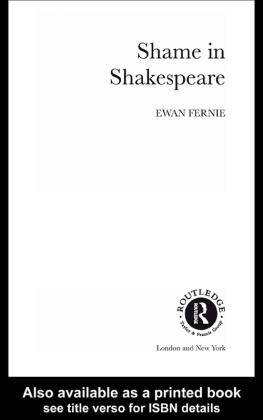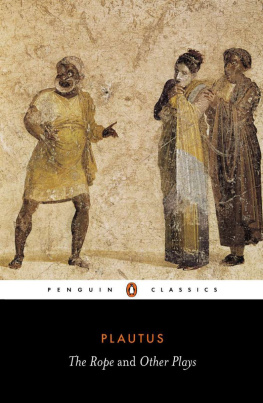Contents
Guide
Page List
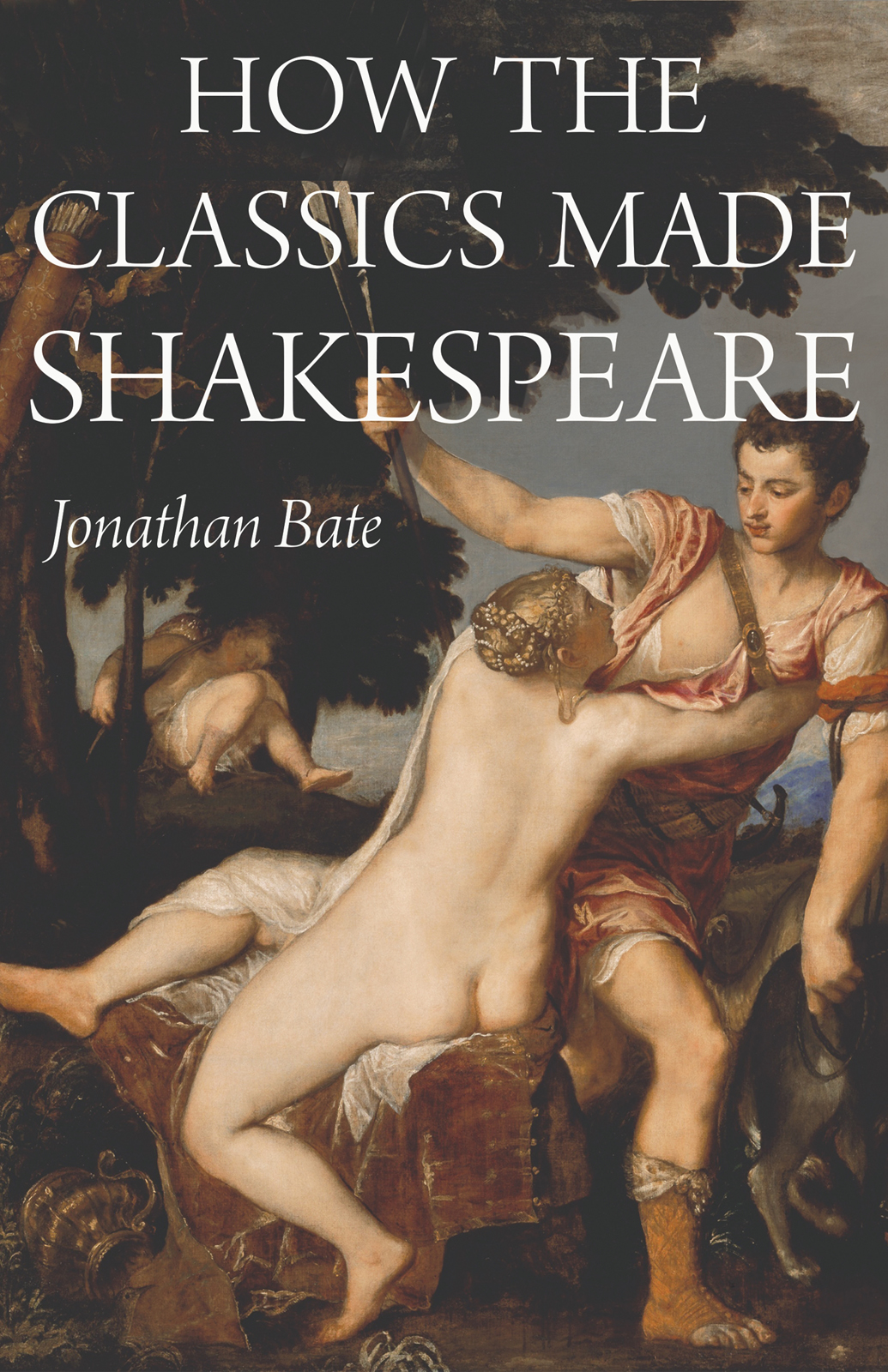
HOW THE
CLASSICS MADE
SHAKESPEARE

HOW THE
CLASSICS MADE
SHAKESPEARE

ALSO BY JONATHAN BATE
Shakespeare and the English Romantic Imagination
Shakespearean Constitutions: Politics, Theatre, Criticism 17301830
Romantic Ecology: Wordsworth and the Environmental Tradition
Shakespeare and Ovid
The Genius of Shakespeare
The Song of the Earth
John Clare: A Biography
Soul of the Age: A Biography of the Mind of William Shakespeare
English Literature: A Very Short Introduction
Shakespeare: Staging the World (with Dora Thornton)
Ted Hughes: The Unauthorised Life
AS EDITOR
Charles Lamb: Elia and the Last Essays of Elia
The Romantics on Shakespeare
The Arden Shakespeare: Titus Andronicus
Shakespeare: An Illustrated Stage History (with Russell Jackson)
John Clare: Selected Poems
The RSC Shakespeare: Complete Works (with Eric Rasmussen)
The RSC Shakespeare: Individual Works (with Eric Rasmussen, 36 volumes)
The Public Value of the Humanities
The RSC Shakespeare: Collaborative Plays by Shakespeare and Others (coeditor)
Worcester: Portrait of an Oxford College (with Jessica Goodman)
Stressed Unstressed: Classic Poems to Ease the Mind (coeditor)
INTRODUCTIONS
Titus: A Film by Julie Taymor
Andrew Marvell: The Complete Poems (Penguin Classics)
The Tempest: A Film by Julie Taymor
The Folio Poets: Lord Byron
CREATIVE WORKS
The Cure for Love (novel)
Being Shakespeare (a one-man play for Simon Callow)
The Shepherds Hut (poems)
HOW THE
CLASSICS MADE
SHAKESPEARE

Jonathan Bate
PRINCETON UNIVERSITY PRESS
PRINCETON AND OXFORD
Copyright 2019 by Princeton University Press
This book is published as part of the E. H. Gombrich lecture series, cosponsored by the Warburg Institute and Princeton University Press. The lectures upon which this book is based were delivered in October 2013.
Published by Princeton University Press
41 William Street, Princeton, New Jersey 08540
6 Oxford Street, Woodstock, Oxfordshire OX20 1TR
press.princeton.edu
All Rights Reserved
LCCN: 2018957530
ISBN: 9780691161600
eISBN: 9780691185637 (ebook)
Version 1.0
British Library Cataloging-in-Publication Data is available
Jacket image: Titian, Venus and Adonis, c. 1555, oil on canvas. Courtesy of Shutterstock
CONTENTS

ix
xiii
Ricardo Luckett
Paulo Hartle
Petro Holland
ob eruditionem et amicitiam
et in memoriam Francisci Kermode
PREFACE & ACKNOWLEDGMENTS

THIS BOOK GREW FROM the inaugural E. H. Gombrich Lectures in the Classical Tradition that I delivered in the autumn of 2013 at the Warburg Institute of the University of London, under the title Ancient Strength: Shakespeare and the Classical Tradition. For the invitation, I would like to thank my dear friend Professor Peter Mack, who was at that time Director of the Warburg, and Al Bertrand of the European division of Princeton University Press. For comments, suggestions, and encouragement, I am grateful to the members of the Institute and others in the audience.
The wide gap of time between those happy occasions and this long-gestated book is due to a combination of the pressure of other commitments and the realization that I had far more to say on the topic than was possible in the brief span of three lectures. Those lectures form the basis of several chapters, but to further my argument I needed to incorporate both new research and additional material that was first essayed on other occasions: a Birthday Lecture given in 2010 at the Folger Shakespeare Library, Washington DC (with thanks to Gail Kern Paster), developed in a different form for the International Shakespeare Conference in Stratford-upon-Avon the same year (with thanks to Kate McLuskie); a lecture in the Bodleian Library of the University of Oxford on the exact four hundredth anniversary of Shakespeares burial, which then became a Royal Irish Academy Discourse in Dublin; a segment of the British Academy Lecture at the 2016 Hay Festival; and even a few paragraphs from a Gladys Krieble Delmas Lecture delivered more than a decade ago for the Institute of English Studies at the University of London (with thanks to Warwick Gould).
Some of the preliminary reflections in were given a trial outing in an April 2016 essay in the Guardian, Shakespeare: Who Put Those Thoughts in His Head? The Epicurean aspect of the Horatian argument in chapter 9 further develops Shakespeare the Epicurean, chapter 24 of my book Soul of the Age: A Biography of the Mind of William Shakespeare (Random House, 2009). Here and there, a few other thoughts from that book have been reformulated.
As this work was nearing completion, I became Gresham Professor of Rhetoric in the City of London. It is an honour to follow in the footsteps of such eminent Shakespeareans as Nevill Coghill, William Empson, and Jan Kott. The first lectures on rhetoric in the College that was Sir Thomas Greshams former home were delivered in 159798, when Shakespeare was residing in the same parish of St Helens, Bishopsgate: in the light of this pleasing coincidence, and given the centrality of rhetoric to my argument about the classical nature of Shakespeares imagination, it seemed only fitting to devote my inaugural series of Gresham lectures to some of the ideas that I was finalizing for this book. Those ideas have been improved immeasurably as a result. For this opportunity, I thank Sir Richard Evans, Provost of Gresham College; Valerie Shrimplin, Academic Registrar; and the City of London Corporation and the Mercers Company, joint trustees of the Gresham legacy.
E. H. Gombrich believed that it was perfectly possible, indeed thoroughly desirable, to present original academic research in such a way as to address large historical and cultural questions in a manner accessible to a broad general audience. Because I believe the same thing, and in order to honour the books origin as public lectures, I have sought to retain the feel of a speaking voice and a tone that is sometimes informal. Equally, I have not assumed that all readers will have a prior acquaintance with, say, the Aristotelian principles of deliberative rhetoric, Ciceros notion of benefits, the infirmity named hereos, and the early modern understanding of Epicurean philosophy. For this, I apologize to the cognoscenti, but I also hope that even the most experienced Shakespeareans will find things here that they did not know or had not noticed. To me, the wonder of Shakespeare is that I continue to find unseen depths in him even after forty years of studying, teaching, editing, watching, and writing about him.
Endnotes have been included in order to acknowledge sources, to engage with relevant scholarship, to suggest material for further reading, and occasionally to elaborate on contexts. They are, however, by no means comprehensive: this book is intended not as a full-scale survey of Shakespeares knowledge of antiquity, but rather as an extended argument about the classical nature of his xi imagination. Latin texts are quoted from the Loeb Classical Library (https://www.loebclassics.com), unless otherwise stated; unattributed translations are my own. All Shakespearean quotations are from the Royal Shakespeare Company Edition,


